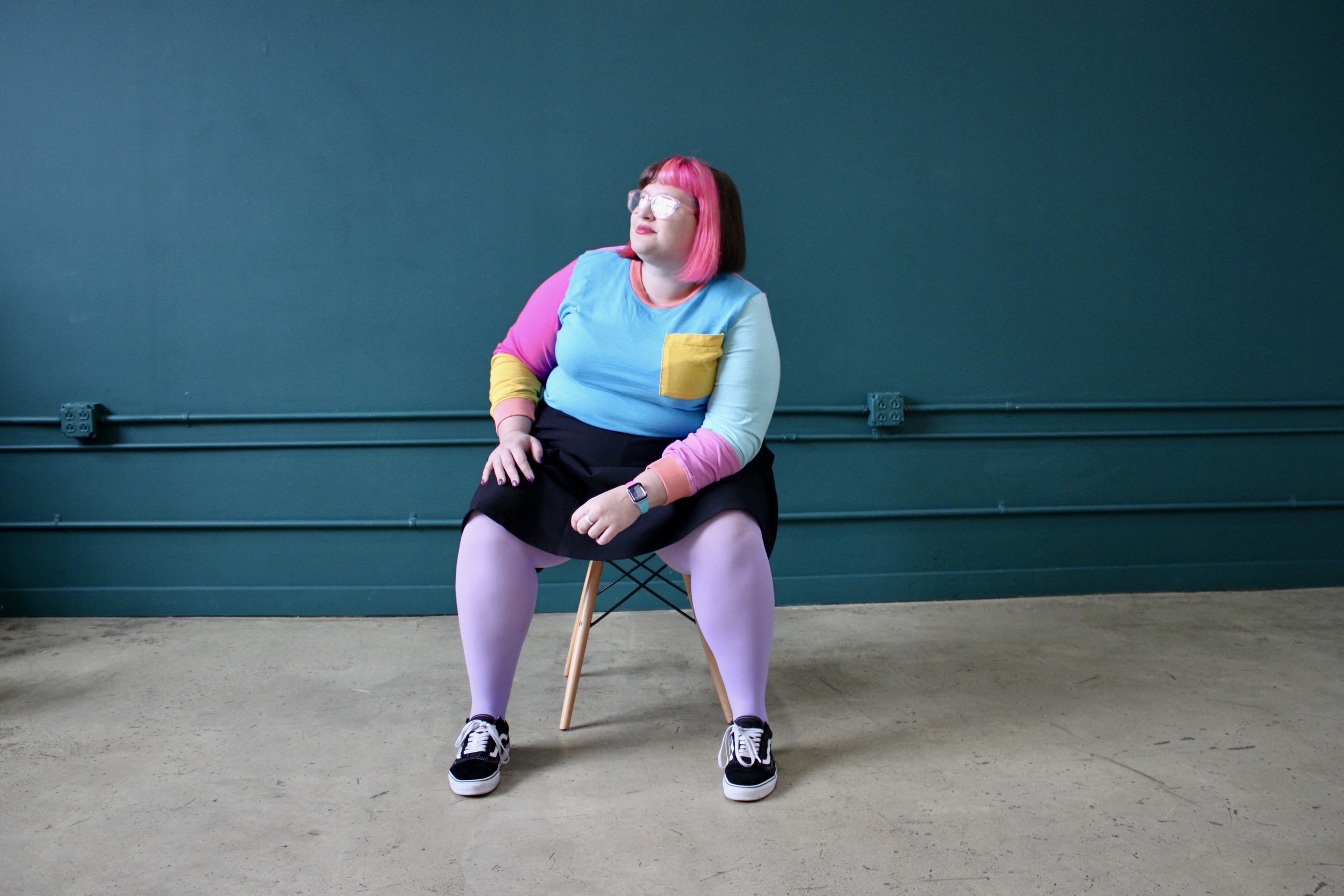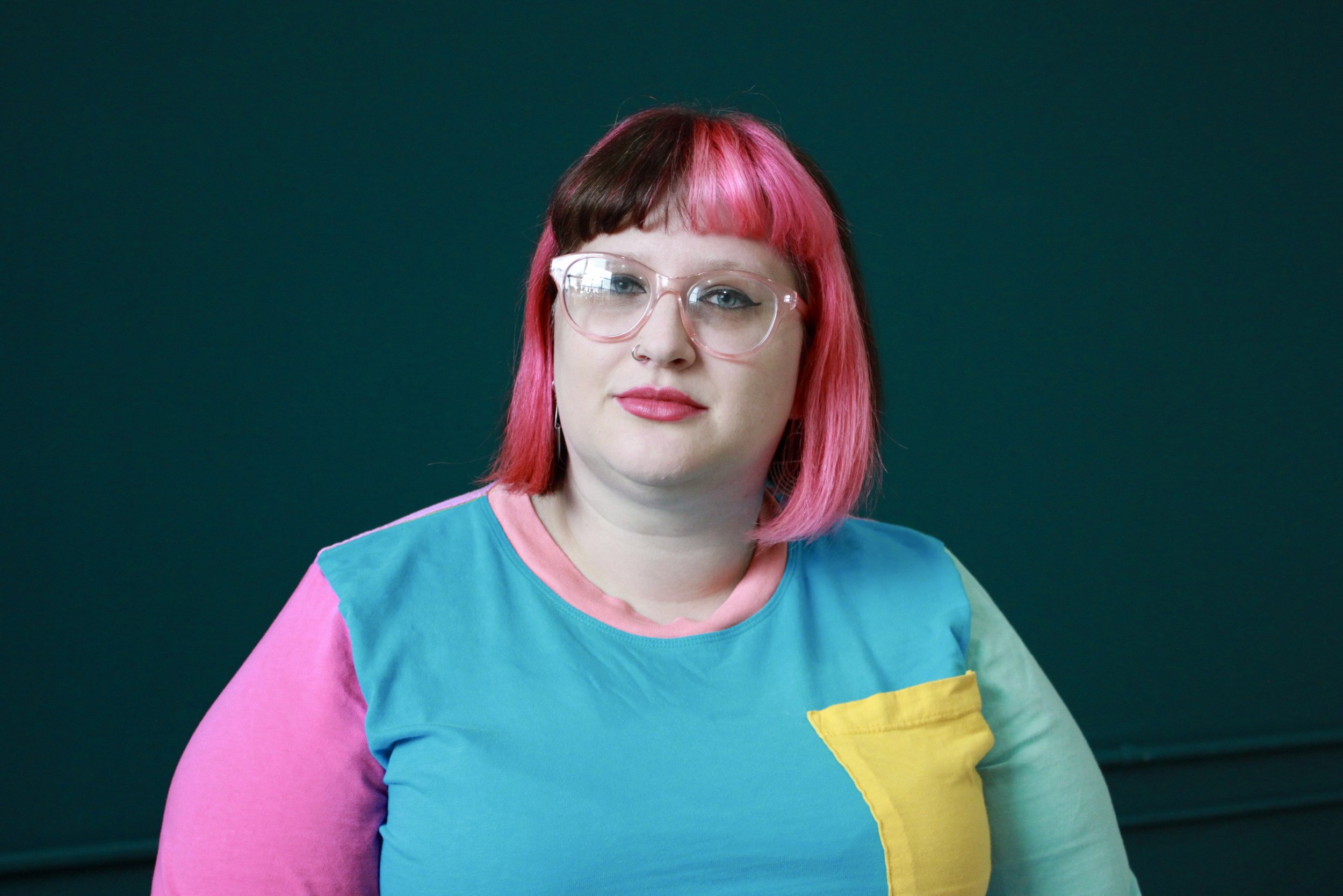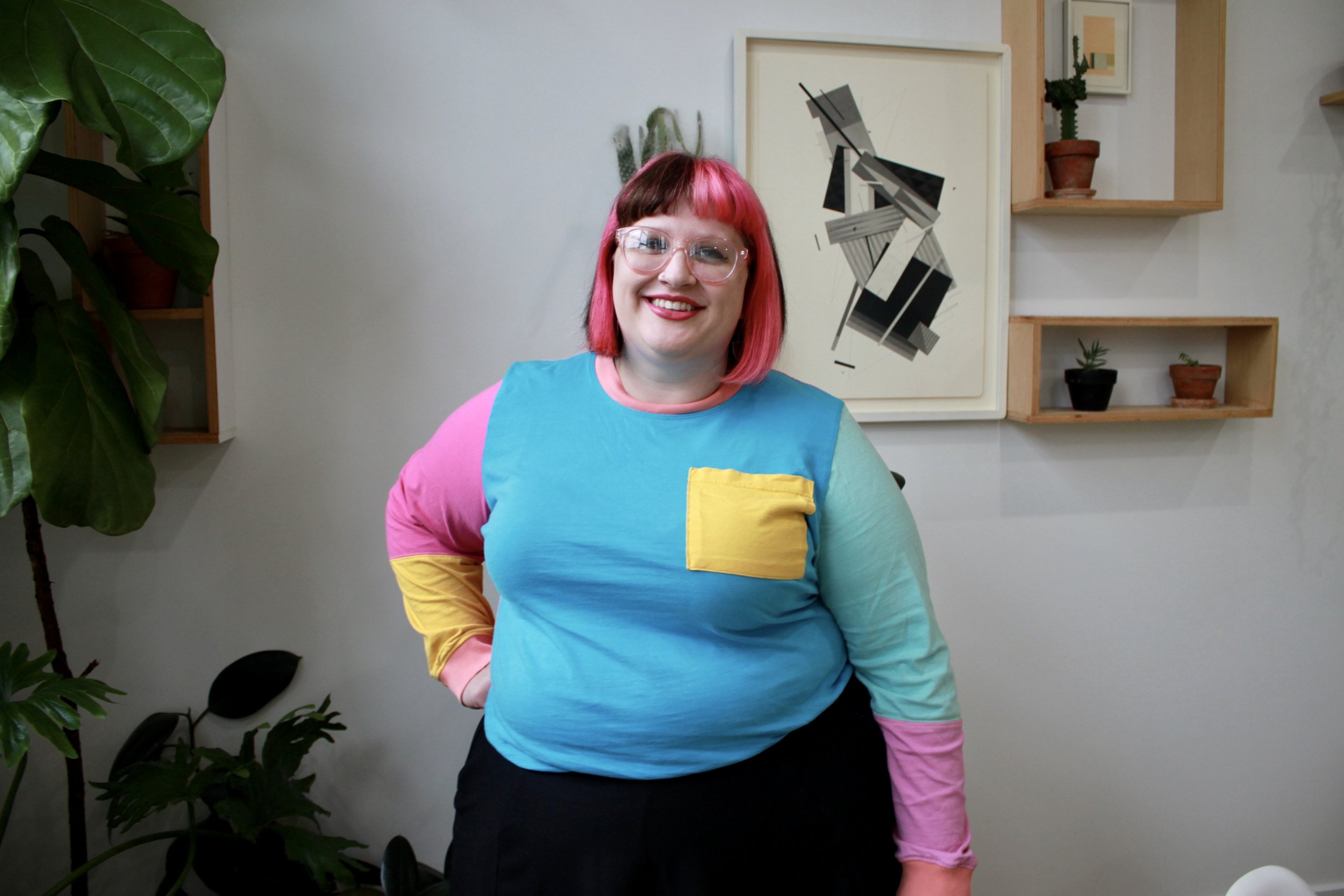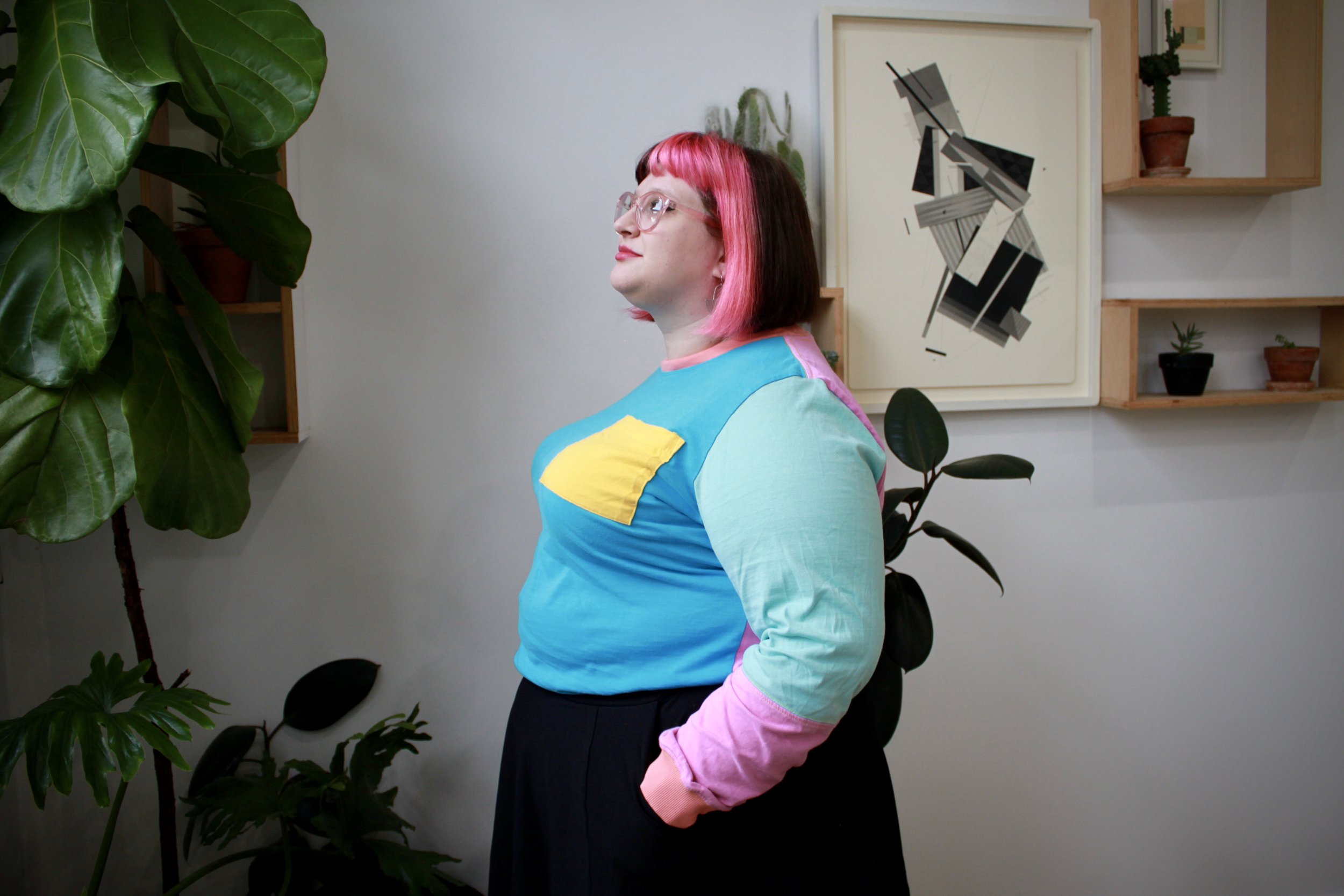Lanni Maszerowski
“I was staunchly against the idea of medication. I was terrified that it would make me into a different person, one that I wouldn’t like or understand. But the more I learned about my diagnoses, the more that staunchness turned to curiosity. What would it feel like to have some more control over my brain? So I relented and my psychiatrist started me on medication for OCD, and soon after, a medication for ADHD . It took a bit to figure out what worked best for me, but WOW, how free I felt! I hadn’t realized how restrictive my obsessive thoughts and compulsions and general out-of-controlness had made me feel. I finally felt like the boss of my brain! Medication didn’t change me—medication made me into the person I am supposed to be.”
NAMI: Have you ever had any mental health struggles? Do you live with a diagnosis? What has your experience been?
LM: I have struggled with my mental health my entire life. In high school I was diagnosed with obsessive-compulsive disorder (OCD), anxiety, depression, and attention-deficit/hyperactivity disorder (ADHD), combined type. I knew from childhood that my brain worked differently than others. My family knew too. But it wasn’t something we talked about. I knew not to talk about it. The tipping point for my diagnoses was admitting to my family that I had been self-harming for four years. When therapy was brought up by my mom, I jumped in feet first. It felt so good to talk to someone about all the feelings swirling around my head. It was like I finally had someone else on my side. At first, I just did talk therapy with a psychologist and a psychiatrist. I was staunchly against the idea of medication. I was terrified that it would make me into a different person, one that I wouldn’t like or understand. But the more I learned about my diagnoses, the more that staunchness turned to curiosity. What would it feel like to have some more control over my brain? So I relented and my psychiatrist started me on medication for OCD, and soon after, a medication for ADHD . It took a bit to figure out what worked best for me, but WOW, how free I felt! I hadn’t realized how restrictive my obsessive thoughts and compulsions and general out-of-controlness had made me feel. I finally felt like the boss of my brain! Medication didn’t change me—medication made me into the person I am supposed to be. Over the past 16 years, I have ebbed and flowed in my mental health journey. I stopped taking medication for ADHD three years ago, because I was unable to keep up the necessary doctor’s appointments for a Schedule II drug in NYS. It was hard learning to cope with the return of my impulsivity and inattention, and I still struggle a lot. Feeling inadequate due to my inability to remember things and accomplish things I used to be able to do triggers depressive episodes for me, like the one I’ve been in the last few weeks. I am currently looking into tele-therapy. I think I need some help getting out of the deep dark this time.
NAMI: If you have had struggles, how have you healed and grown from your experiences? If you consider yourself in recovery from something, what does recovery mean to you?
LM: I would consider myself in recovery from self-harming. I have been clean for over fourteen years, but I think I will always be in recovery, because it is always where my brain goes at my lowest points. Last year I attempted to wean off of the medication I take for OCD and depression (with support from my doctor). At the tail end of the wean, I had an anxiety attack while camping and almost undid those many years of hard work. (We reestablished the original dosage after that.) To show that I truly had put that part of my life behind me, I got a tattoo, my first one, over my scars last winter. It’s a beautiful reminder of the person I was and the person I have grown to be.
NAMI: How do you protect your mental health? What forms of self-care do you practice? What keeps you balanced?
LM: Answering this question is a great exercise for me, because the answer is, I’m not doing much self-care right now, and I should be. During the shutdown, I read. I read a lot. I read over 160 books last year. Reading is one of the only things I can do for hours on end (hyperfocusing). I don’t watch a lot of TV or movies because they can’t hold my focus, but books are a whole other story (no pun intended). Unfortunately, my work schedule is packed, and any “free time” I have is spent on school stuff (I am a fifth grade teacher) or business stuff (I have a small business called Lanni Made). So I’m fitting self care into little bits here and there. Usually it’s a few minutes to myself to scroll on my phone, or on a weekend, a bit of a nap. I’m a huge nap fan!
NAMI: What forms of mental health-related stigma have you observed or run into personally? How do you combat stigma?
LM: I actually just shared this story on my Instagram. Six years ago, on World Mental Health Day, I shared a selfie of me with my meds with text about my mental health journey as a person with OCD, ADHD, anxiety, and depression. I received a phone call soon after from my well-intentioned mother, telling me I should take it down, that the things I shared should be private. Lucky for me, I’m stubborn as heck. The post stayed up, and I started a journey to help end the stigma of being open about mental illness. Hearing the stories of others and sharing my own has been eye opening. Realizing that I wasn’t the only one struggling, that others like me were living kickass lives, that people found strength in me sharing my story—those things have kept me going.
NAMI: As a non-binary person, have you experienced misgendering? How has it impacted you?
LM: Because I dress femininely, my gender is assumed by strangers daily, whether I like it or not. “Excuse me, ma’am,” “Welcome, ladies,” “Thanks, girlie,” I hear gendered language like this all day long. When I first came out as non-binary two years ago, it didn’t bother me much. Now, it makes me cringe. However, I don’t often correct people, especially strangers, because it’s not always worth it. I don’t feel like I should have to constantly say that I’m not a woman. That’s not my job. I do feel like people should put in more effort to ungender their language, though. You can’t assume someone’s gender by looking at them, so it’s important to practice using gender neutral language.
NAMI: How did remote teaching during the pandemic affect your mental health? What is it like now? Do you feel like teachers have adequate mental health resources and support? What could be improved?
LM: Man oh man, it’s been a heck of a ride. When we first shut down, I spiraled into what I call the deep dark. I was stuck at home all day, every day, and I missed being around my students. Remote learning hadn’t really been established yet - all of our remote learning was asynchronous, so I felt super disconnected from school. In the fall, despite my protests, I was assigned to teach remotely (because I am talented with technology). I was luckily able to work from school, with my kids on Zoom all day with me. Being around people definitely helped, but talking to kids on a screen all day still made me feel so disconnected. The best days were our class “get-together” days, where we met up and did things together like taking hikes, ice skating, and geocaching. But the days between were hard on my heart. We are all back in school now this year and it has been HARD. The kids feel younger this year, and their abilities to resolve conflicts have declined, making each day exhausting. For the first time in my teaching career, I am bringing hours of work home with me each night. I get to school about 1.5 hours before it starts, and I stay as late as I can before my night job, and I still can’t get everything done. Having ADHD doesn’t help - sometimes it takes me hours to do simple things because I forget what I’m doing, or I accidentally shift to doing something else, or I stare into space. I feel stretched too thin at school, and I know my colleagues would agree. Too many changes are happening at once, and the uncertainty of the pandemic compounds the hecticity. We rely on each other for support when it comes to mental health, which is not always fair. In the future, I think schools should have in-house mental health professionals that work specifically with staff. It is so hard to feed our students when our own bowls are empty.
NAMI: You have one of the coolest classrooms on IG! Lots of wall art with important messages to your students. What sorts of messages do you instill in your students regarding mental health?
LM: First of all, thank you! I am honest with my students from the first day of school about my mental health. I share a short book that I wrote about myself, and there is a section called “What Makes Me Special” where I talk about being neurodiverse, non-binary, and disabled (I have rheumatoid arthritis). I am completely transparent with my students, because I want them to know that knowing ourselves, understanding how our brains work, that’s something to be proud of. It is so important to me that they don’t feel the stigma and shame around discussing mental health that I, and so many others, felt growing up. When I share that I have ADHD or anxiety, I always have a few students that get excited because they are living with the same diagnoses. They are proud to share that they have something in common with their teacher. Forming this connection with them is absolutely invaluable, because they get to see an adult they admire be successful despite the challenges they may see their diagnoses posing. I want my students to feel limitless.




